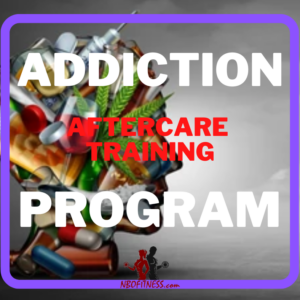
Ventricular hypertrophy occurs when the heart muscle becomes thickened and stiffened, leading to reduced efficiency in pumping blood. This can strain the heart and increase the risk of cardiovascular complications such as heart failure, arrhythmias, and sudden cardiac death. Obesity is a significant risk factor for ventricular hypertrophy, as excess body fat can lead to hypertension, insulin resistance, dyslipidemia, and inflammation, all of which can contribute to the development of ventricular hypertrophy. Additionally, obesity is associated with increased cardiac workload and volume overload, further straining the heart and promoting the thickening of the ventricular walls.
Reviewed by Evans Mwaniki, PT
Introduction
Ventricular hypertrophy is a condition characterized by thickening of the walls of the heart’s ventricles, the lower chambers responsible for pumping blood to the rest of the body. While ventricular hypertrophy can be a normal adaptation to increased workload, it can also result from underlying health conditions such as high blood pressure, heart valve disease, and obesity. At Nairobi Fitness Consulting, we are committed to supporting individuals in preventing and reversing ventricular hypertrophy through personalized exercise programs, nutritional counseling, and psychological support.
Understanding Ventricular Hypertrophy
Ventricular hypertrophy is often categorized into two types:
- Left ventricular hypertrophy (LVH): This occurs when the walls of the left ventricle, which pumps oxygen-rich blood to the body, become thickened.
- Right ventricular hypertrophy (RVH): This occurs when the walls of the right ventricle, which pumps blood to the lungs for oxygenation, become thickened.
Both types of ventricular hypertrophy can impair heart function and increase the risk of adverse cardiovascular events if left untreated.
Signs and Symptoms
In its early stages, ventricular hypertrophy may not cause noticeable symptoms. However, as the condition progresses, individuals may experience:
- Shortness of breath, especially during physical activity or when lying flat.
- Fatigue or weakness, due to reduced cardiac output.
- Chest pain or discomfort, particularly during exertion.
- Palpitations or irregular heartbeat.
- Dizziness or fainting spells.
- If left untreated, ventricular hypertrophy can lead to serious complications, including heart failure, stroke, and sudden cardiac arrest.
Treatment Options
The treatment of ventricular hypertrophy aims to reduce the workload on the heart, control blood pressure, and prevent complications. Common treatment options may include:
- Lifestyle modifications: Adopting a heart-healthy lifestyle is essential in managing ventricular hypertrophy. This includes maintaining a healthy weight, following a balanced diet low in sodium and saturated fats, engaging in regular physical activity, quitting smoking, and limiting alcohol intake.
- Medications: Medications such as beta-blockers, ACE inhibitors, calcium channel blockers, and diuretics may be prescribed to lower blood pressure, reduce the workload on the heart, and prevent further thickening of the heart muscle.
- Cardiac rehabilitation: Physiotherapy cardiac rehabilitation programs can help individuals with ventricular hypertrophy improve cardiovascular fitness, manage risk factors, and learn healthy lifestyle habits under the guidance of a physiotherapist.
The Role of Obesity in Ventricular Hypertrophy
Obesity is a significant risk factor for ventricular hypertrophy, as excess body fat can lead to hypertension, insulin resistance, dyslipidemia, and inflammation, all of which can contribute to the development of ventricular hypertrophy. Additionally, obesity is associated with increased cardiac workload and volume overload, further straining the heart and promoting the thickening of the ventricular walls.
How Nairobi Fitness Consulting Can Help
At Nairobi Fitness Consulting, we offer a holistic approach to heart health that addresses the underlying factors contributing to ventricular hypertrophy. Our team of physiotherapists, nutritionists, and psychologists work together to provide personalized care and support to individuals at risk of heart conditions. Here’s how we can help:
- Personalized exercise programs: Our physiotherapists can design medically tailored exercise programs to help individuals improve cardiovascular fitness, lower blood pressure, and manage weight. Regular monitored physical activity is essential in reducing the risk of ventricular hypertrophy and improving heart health.
- Nutritional counseling: Our nutritionists can provide guidance on adopting a heart-healthy diet that supports weight management, lowers blood pressure, and reduces inflammation. They can also offer support and motivation to help individuals make sustainable dietary changes.
- Psychological support: Coping with the challenges of heart conditions such as ventricular hypertrophy can be stressful. Our psychologists offer counseling and support to help individuals and their families navigate the emotional aspects of living with a heart condition and improve their overall quality of life.
Conclusion
Ventricular hypertrophy is a serious heart condition that requires prompt medical attention and comprehensive care. By addressing modifiable risk factors such as obesity through lifestyle interventions, individuals can reduce their risk of ventricular hypertrophy and improve their overall heart health. At Nairobi Fitness Consulting, we are committed to empowering individuals to take control of their health and reduce their risk of heart conditions through personalized exercise programs, nutritional counseling, and psychological support. If you or someone you know is at risk of ventricular hypertrophy or has been diagnosed with this condition, don’t hesitate to reach out to us today for personalized care and support.
Our concierge (at home) team of medical personnel, physiotherapists, nutritionists and psychologists, allow you to participate in personalized therapeutic exercises, nutrition and psychological counseling sessions from the comfort of your own home at the time of your choosing, making it convenient for you and your family. Feel free to email us at [email protected] or call us via +254-725-251930 to book an appointment with us at Nairobi Fitness Consulting for your curated and guided prescription and start living your best life.










